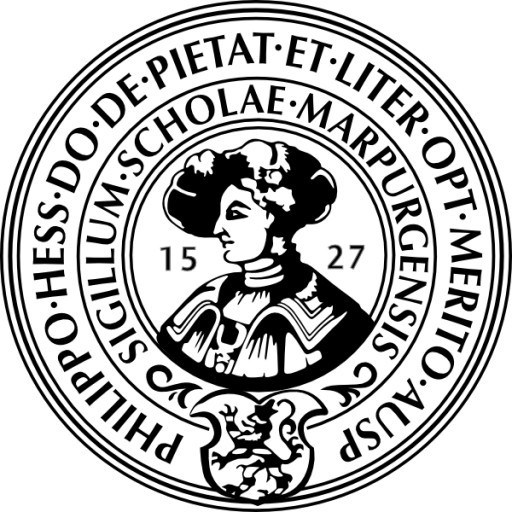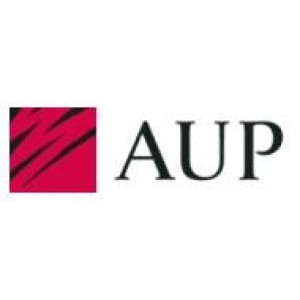Photos of university / #soasuni
Students seeking a more critical and richer knowledge and understanding of the relationship between communications, culture, politics and society in the changing Middle East
This degree takes up the study of the relationship between politics, culture and communication in the Middle East through two inter-related approaches, the first thematic and the second through comparative analyses of case studies. This relationship is more pertinent to address and critique particularly in the context of the ongoing uprisings and protests in diverse parts of the Middle East. These protests which are taking place in diverse spaces of expression, including media spaces, have posed challenges to conventional theoretical and methodological approaches to understanding the Middle East and its peoples. While much has been said about the formal political outcomes and machinations of these protests, and about their meaning, there remains a serious gap in the theorization and study of the mediation of political, cultural and social life.
As a starting point, the degree draws on theoretical approaches central to the study of culture, politics and communication, as well as theoretical frameworks used in other disciplines, to critically assess the continuously changing media and cultural landscape in the Middle East and interrogate the relationship between media, cultural production and politics. Given the fluid situation in most countries of the Middle East, the degree will critically examine different aspects of these changes, explore diverse perspectives and link them to specific case studies in order to encourage new ways of thinking and understanding the region that move out of Euro-centric debates and approaches that have resulted in vague generalizations and imaginations of the region as a coherent, self-sealed and self-explanatory space.
The programme also provides the basis from which students may proceed to (MPhil/PhD) graduate research.
This course takes up the study of the relationship between politics, culture and communication in the Middle East through two inter-related approaches, the first thematic and the second through comparative analyses of case studies, particularly in the context of the ongoing Arab uprisings which pose challenges to conventional theoretical and methodological approaches to understanding change, movement and politics in the region. As a starting point, the course draws on theoretical approaches central to the study of culture, politics and communication, as well as theoretical frameworks used in other disciplines, to critically assess the continuously changing media and cultural landscape in the Middle East and interrogate the relationship between media, cultural production and politics. Given the fluid situation in most countries of the Middle East, we will examine different aspects of these changes in the weekly seminar sessions to encourage new ways of thinking and understanding the region. The approach balances critical theoretical analysis of the hegemony implied by various paradigms with practical issues surrounding the use of media, including digital technologies.
Students must take the equivalent of 4 units.
Two Compulsory Units
- Communication, Culture and Politics in the Middle East: Theoretical and Analytical Approaches - 15PMSC005 (1 Unit) - Full Year
- Dissertation in Media and the Middle East - 15PMSC996 (1 Unit) - Full Year
At least two half-units from the range of options in the Centre for Media and Film Studies
- Emerging digital cultures in Asia and Africa - Theory and Practice - 15PMSH018 (0.5 Unit) - Term 2
- International Political Communication - 15PMSH009 (0.5 Unit) - Term 2
- The Transnational News Environment: Production, Representation and Use - 15PMSH006 (0.5 Unit) - Term 1
- Transnational Communities and Diasporic Media:Networking, Connectivity, Identity - 15PMSH004 (0.5 Unit) - Term 2
- Theoretical Issues in Media and Cultural Studies - 15PMSH005 (0.5 Unit) - Term 1
- Studies in Global Media and Post-National Communication - 15PMSH007 (0.5 Unit) - Term 1
- Media Production Skills - 15PANH050 (0.5 Unit) - Term 2
- Studies in Media, Information Communication Technologies and Development - 15PMSH019 (0.5 Unit) - Term 1
- Critical Approaches to the Study of Regional Cinemas - 15PMSH008 (0.5 Unit) - Full Year
- Iranian Cinema - 15PMSH010 (0.5 Unit) - Term 1
- Arab Cinemas - 15PMSH013 (0.5 Unit) - Term 2
Up to two half units or one full unit from approved options from other departments of the school
Options available in Cinemas of Asia and Africa
- Japanese Post-war Film Genres and the Avant-garde - 15PMSH001 (0.5 Unit)
- Japanese Television since 1953 - 15PJKC006 (1 Unit) - Full Year
- Genders and Sexualities in South East Asian Film - 15PSEH011 (0.5 Unit) - Term 2 - Not Running 2013/2014
- (Post) Colonialism and Otherness in South East Asia on Screen - 15PSEH010 (0.5 Unit) - Term 2 - Not Running 2013/2014
- Indian Cinema: Its History and Social Context - 15PSAH001 (0.5 Unit) - Term 1
- Indian Cinema: Key Issues - 15PSAH002 (0.5 Unit) - Term 1
- Critical Approaches to the Study of Regional Cinemas - 15PMSH008 (0.5 Unit) - Full Year
Options available in Department of Anthropology
- Anthropology of Development - 15PANC090 (1 Unit) - Full Year
- Anthropology of Urban Space, Place and Architecture - 15PANH029 (0.5 Unit) - Term 2 - Not Running 2013/2014
- Culture and Society of the Near & Middle East - 15PANC097 (1 Unit) - Full Year
- Perspectives On Development - 15PANH033 (0.5 Unit) - Term 1
Options available in the Department of Politics
- Islam and politics - 15PPOH006 (0.5 Unit) - Term 2
- Political violence - 15PPOH009 (0.5 Unit) - Term 1
- State and transformation in the Middle East - 15PPOH011 (0.5 Unit) - Term 2
Options available in Department of Development Studies
- Aid and development - 15PDSH027 (0.5 Unit) - Term 1
- Civil society, social movements and the development process - 15PDSH001 (0.5 Unit) - Term 2
- Gender and development - 15PDSH010 (0.5 Unit) - Term 1
Options available in Comparative Literature and Gender
- Theory and techniques of Comparative Literature - 15PCSC002 (1 Unit) - Full Year
- Postcolonial Theory and Practice - 15PCSC003 (1 Unit) - Full Year
- Modern Arabic Literature and the West - 15PNMC002 (1 Unit) - Full Year
Options available in the Department of Music
- Music in Development - 15PMUC034 (1 Unit) - Full Year
Options available in the Study of Religions and in History of Art
- Approaches to Critical Interpretation & Aesthetic Theories - 15PARC004 (1 Unit) - Full Year - Not Running 2013/2014
- Arts and Society in sub-Saharan Africa - 15PARH052 (0.5 Unit) - Term 1
- Diaspora Contexts and Visual Culture - 15PARH042 (0.5 Unit) - Term 2
- Representing Conflict: A Cross-Cultural and Inter Disciplinary Approach - 15PARH039 (0.5 Unit) - Term 1
- Critical Theory and the Study of Religions - 15PSRC037 (1 Unit) - Full Year
- Jewishness on Screen - 15PSRH044 (0.5 Unit) - Term 1 - Not Running 2013/2014
- Photography and the Image in Africa; and other Regional Perspectives - 15PARC036 (1.0 Unit) - Not Running 2013/14
Options available in the Department of Economics
For the following courses a background is required - admission is on a case-by-case basis
- The economic development of South East Asia - 15PECC004 (1 Unit) - Full Year
- Economic problems and policies in modern China - 15PECC035 (1 Unit) - Full Year
- Economic dynamics of the Asia-Pacific region - 15PECC334 (1 Unit) - Full Year
Want to improve your English level for admission?
Prepare for the program requirements with English Online by the British Council.
- ✔️ Flexible study schedule
- ✔️ Experienced teachers
- ✔️ Certificate upon completion
📘 Recommended for students with an IELTS level of 6.0 or below.











